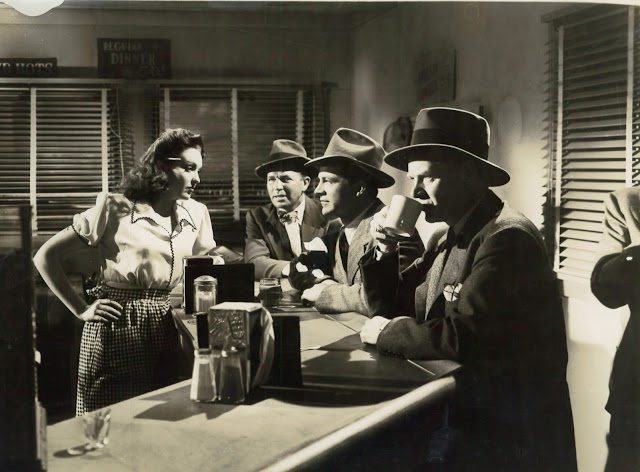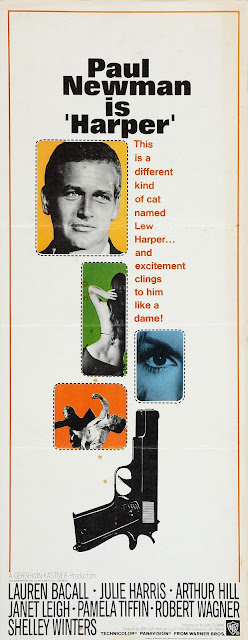Again Where Teens Ruled The Roost
Rooney-Garland Steamroller Continues with Strike Up The Band (1940)
The second bundle of joy from Mickey and Judy as show-biz aspirants, Strike Up The Band shows how easy stardom might be had if luck is yours and proper ethic choices are made. Will Mick sacrifice his big break so a doctor can be flown in to fix a neighbor kid's broke arm? Yes, he can and does, from which flows an even better break (playing with Paul Whiteman's orchestra!) for being such a square shooter. Such was Classic Era fantasy of life dealing reward for selfless acts, and to watch Rooney here, you almost imagine it could work. Maybe movies had something in good paying off ... surely it did in terms of profit. Was a
Make believe aspect of Strike Up The Band went beyond small town kids staking all on a show biz dream and winning, farthest remove from reality being Rooney/Garland as apple-pie product of loving and stable homes. Could either identify with their screen characters on any level? To read their bios is dip into American gothic. No quantity of fame would be worth price these two paid. Never mind parents, none of four involved worth a pinch of salt as providers, let alone nurturers. I'd guess that Mickey and Judy grew up thinking normal family life was strictly the stuff of dreams, which is likely why they functioned best behind Metro walls. Somewhere it's written that Rooney acted most like a human being while on sets with director and crew.
Strike Up The Band came when both were peaking. There was no youth pair to compare with R and G. Teams elsewhere tried, like at Universal where Donald O' Conner and Gloria Jean, or Susanna Foster, would mix and match, none novas like Rooney/Garland. Aspirants also lacked Metro resource and brilliant teamwork behind cameras that made each of R/G teamings an event. To call these "barnyard musicals" suggests modesty, a down-step from pageants where grown-ups sang and danced. Actually, the Mickey/Judys were most reliably profitable of all musicals MGM had going. There would have been more had not each taken so much time to prepare and produce (unlike Universal where musicals were served off cookie sheets baked alike). Must have been pain for Loew bookkeepers to watch Rooney/Garland age out of "Let's Put On A Show" format, just as it was to see Andy Hardy grow up and finish out of the money.
That's Entertainment! kidded the group by montaging scenes of exuberant Mickey ("We can form our own modern dance orchestra!"), as if that happened in dozens of films rather than mere four. In a 1974 fresh out of ideas, other than recycle of old ones, mockery was salve for failure to pack creative gear, and who knows, laughing at betters may have been comfort in the face of going broke, which MGM surely was when adding "Boy, Do We Need It Now" to posters for That's Entertainment!, a for-once instance of truth in advertising. On the other hand, Strike Up The Band may shine brighter as excerpts rather than whole product, two hours a tad long to stay aboard such light vessel. Narrative in a nutshell: Mickey and Judy want to be musical stars and figure Paul Whiteman can help them do it. In a meantime, there is frustrated love (Judy for Mickey), broken dates (him lured by acrobatic back-flip of June Preisser, offscreen Rooney no doubt appreciative of possibilities in that), and parent/authority figures who must be respected even as they impede progress toward footlights. One thing teens never did at MGM was question authority. How many youngsters of unstable family background dreamed of Lewis Stone for a father?
 |
| Yes, It's That Mighty King Of Jazz, Paul Whiteman, as Show Biz Counsel to Mick |
And then there is Paul Whiteman. Belittled today as false prophet and bogus King Of Jazz, he ruled roost that was bandstands from the 20's till swing eased him toward emeritus status and remain of a career where Whiteman kept baton aloft, pioneered among big names doing D.J. duty, and took his act to most secure of memory banks that was TV. In short, Whiteman did all things right in context of his times, cash and comforts served, if not posterity's approval. He's ideal as show biz mentor to Mickey, repeating familiar movie maxim that being a great guy is always preferable to money or success, to which 100% of performers then/now would say "Oh, yeah?," but Whiteman sells the speech and ideal, which for all we know, the bandleader bought into himself. Strike Up The Band is part of a Rooney/Garland DVD set from Warners, Mick supplying another of his odd-intense old age intros, plus the big conga number is here in sort-of stereo, a result of 1940 stage recording where two or more microphones were placed among the orchestra to bracing effect. It's an extra on the Band disc.
UPDATE (7-1-2020): Strike Up The Band is just out on a stunning Blu-Ray from Warner Archive.


























































